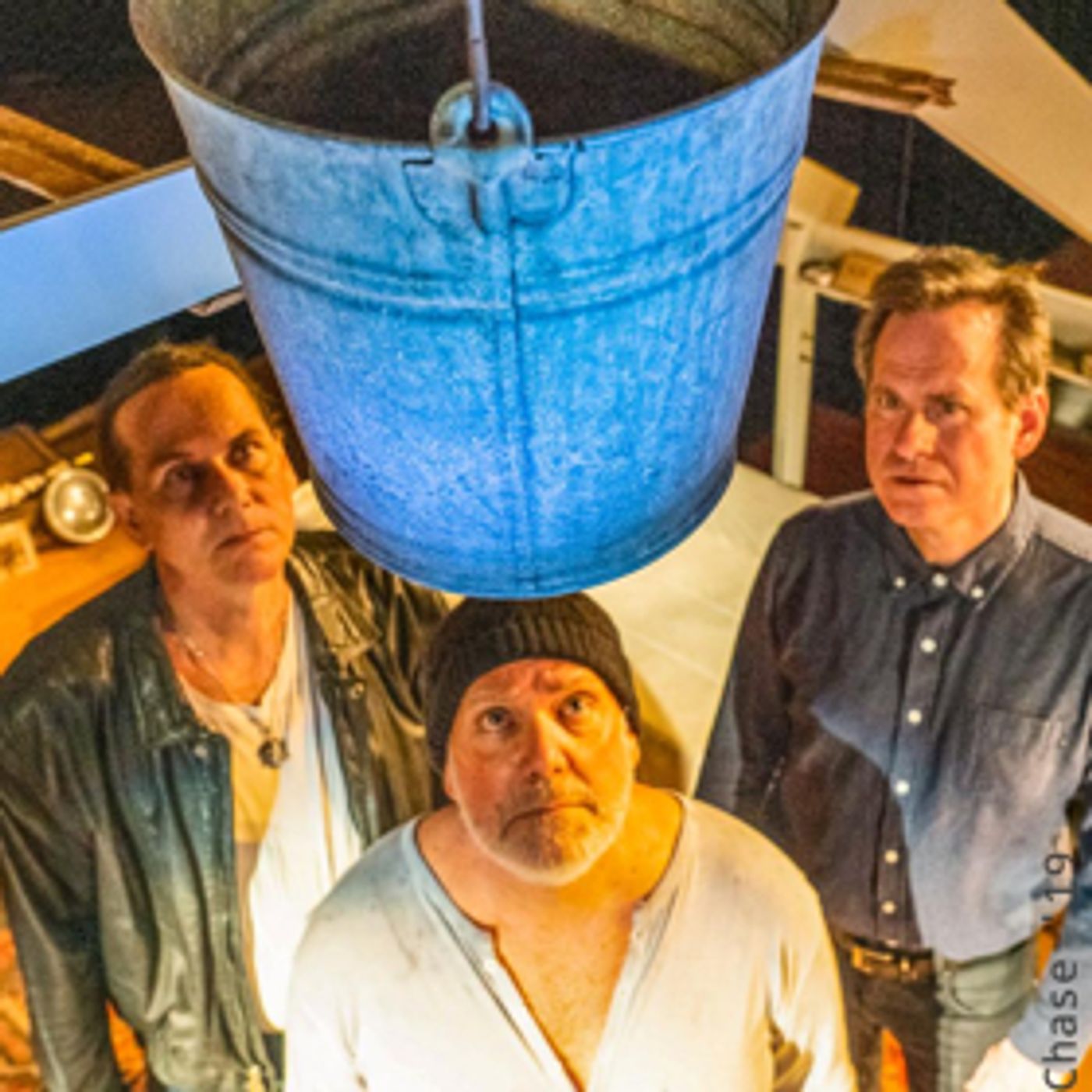Review: Pinter's THE CARETAKER Comes To Weehawken

Editor's Note: Broadwayworld welcomes this guest review by Matthew Michaels. Matthew is a writer from Jersey City. He has previously written about sports, personal finance, travel, and careers but is now taking on the dramatic world of theater. You can follow Matthew Michaels on Twitter @MichaelsMatthew. Stay tuned to Broadwayworld for more of Matthew's articles and reviews.
"What do you do when that bucket's full?"
This is the practical concern that Davies has as brothers Aston and Mick are discussing repairs to a cracked roof. It is the rare moments of lucidness like this one that leads Davies to be offered the title role in THE CARETAKER. However, Davies, a tramp that Aston brings into his home from off the street, cannot live up to the job in Harold Pinter's 1960 London set play, currently playing in Weehawken, New Jersey courtesy of Hudson Theater Works.
This production leans heavier on the dramatic aspects of Pinter's tragicomedy, offering humor in more subtle tones. This is best exemplified in the famous "bag" sequence, where all three men are trying to grab a bag from each other's arms. It breaks conventions and bucks expectations. By doing so, the gag produces laughs, but the tension is never resolved as the actors lift back a curtain to reveal the absurd the audience is left to deal with.
Pinter's surreal style, chocked with non-sequiturs, one-word responses, and a bevy of dramatic pauses allows THE CARETAKER to border, and often alternate, between hyper-realism and the absurd. The famed Pinter Pause, numerous moments of silence packed in each scene, is a welcome respite to dialogue heavy plays which scare of realistic moments with no noise. There is also a memorable moment where two scenes are divided by mere seconds, a surprising theatrical device that suggests the arbitrary nature of division of time.
The Hudson Theater Works production, directed by Frank Licato, keeps the tone that makes THE CARETAKER one of the preeminent examples of absurdist theater. The positioning of the actors, with their backs often turned to the audience, is more natural that theatrical. The blocking combined with the unorthodox dialogue proves that communication isn't always clear to an outside observer, or even a participant, as the trio of characters talk to each other, but frequently fail to understand each other.

Aside from the universal theme of self-deception which all three characters emanate, THE CARETAKER deals with more timely matters that the audience of this production will find familiar. The homeless and unemployed Davies harbors a fair bit of racial animosity, which initially surprises as we expect someone with such a low station in life to be more open to others. Aston tells Davies that the family next door are Indians, but Davies instantly calls them black and expresses fear and distrust of these unseen neighbors.
Davies also projects a sort of "economic anxiety," racism veiled as concerns for the working class that have been displayed in the United States over the last few years. Davies deludes himself into thinking that he can gain employment at a nearby café because "they can't find the kind of people in these places." Davies' thinly veiled xenophobic rant continues as he says that "they're trying to do away with these foreigners, you see, in catering. They want an Englishman to pour their tea."
Davies' obsession with tea and his fascination with Aston's Buddha statue belies the fact that both are products of open trade and European colonization of East Asia. The play is arguing that Davies is lying to himself, that his situation of unemployment and homelessness, is not caused by others but from his own faults.
The play, like much of the work from noted anti-war advocate and conscientious objector Pinter, is rooted in the societal level fallout of World War II. The Hudson Theater Works production subliminally emphasizes this with the stark black and white video montages placed between scenes.
The restrained play is performed by just three actors, Todd Hilsee as Aston, Tom Althouse as Mick, and director Frank Licato as Davies. Hilsee also stepped in as the set designer, providing scenery that was simultaneously sparse and dense. Along with stage management from Dawn M. D'Arrigo and lighting design by David Fillmore, THE CARETAKER manages to land an outsized punch without much noise.
Performances of Hudson Theater Works' THE CARETAKER are ongoing at The Wilson School in Weehaken, New Jersey until March 10. Performances are at 8:00 pm, Thursdays to Saturdays; and at 5:00 pm on Sundays. Tickets are $25. For more information, visit: https://hudsontheatreworks.com/.
Photo Credit:
Photo Credit: by Chase, Newhart Photo
Reader Reviews
Videos

